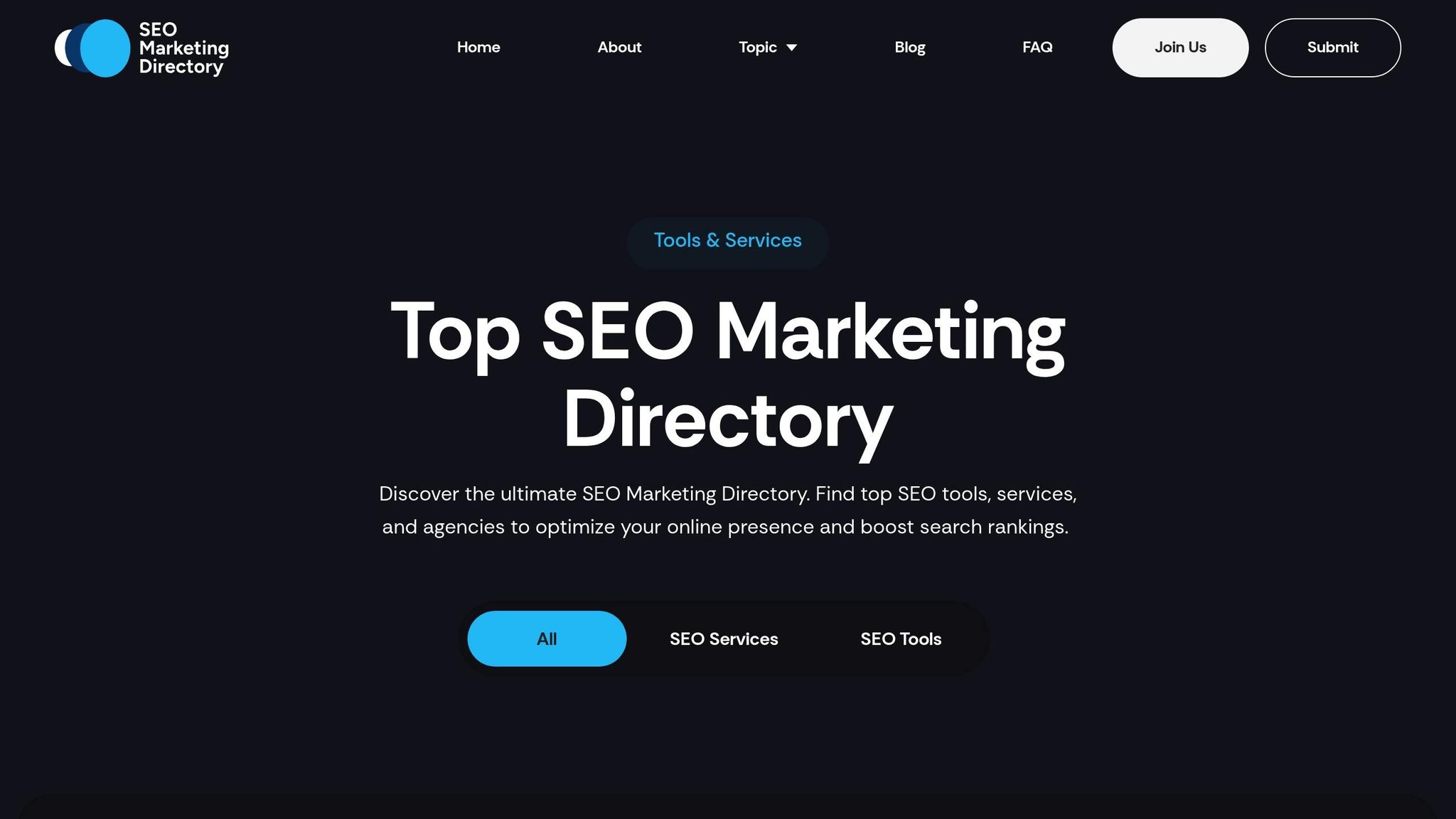When your website gets hit with DMCA notices, it’s not just about removing content - it could hurt your search rankings and traffic. Here’s what you need to know upfront:
- What Happens: DMCA notices lead to URL removal from Google search results. This means losing traffic instantly.
- Bigger Problem: Frequent DMCA claims can result in site-wide ranking penalties or even de-indexing.
- Google's Pirate Algorithm: Sites with repeated copyright complaints are flagged, lowering their rankings further.
- What You Can Do: Regularly audit your content, respond quickly to notices, and file reconsideration requests after resolving issues.
Ignoring DMCA notices can devastate your SEO. Understanding how they work and acting fast is key to protecting your site’s visibility.
The Dark Side of SEO: How DMCA Abuse Is Wrecking Google Rankings
How DMCA Notices Impact SEO Rankings
DMCA notices don’t just result in content removal - they can significantly affect your website’s search performance. These impacts go beyond the immediate loss of visibility and can ripple across your entire domain, affecting organic traffic and rankings.
URL Removal and Traffic Loss
When Google validates a DMCA notice, it removes the flagged URLs from search results. This means the affected pages lose all their organic traffic instantly. What’s more, the removal doesn’t just target the infringing content - it takes down the entire URL, so any legitimate content on that page disappears too.
While Google Search Console will notify you about the removal, by the time you’re informed, the traffic loss has already taken a toll. Fixing this issue involves resolving the copyright complaint, but regaining visibility isn’t quick or easy. The process can drag on, causing extended traffic disruptions and potentially impacting your broader SEO strategy.
Site-Wide Ranking Penalties
Repeated DMCA notices can lead to more severe consequences. If your site accumulates multiple infractions, Google may view your entire domain as less trustworthy. This can result in ranking penalties that affect all pages on your site - even those with no infringing content.
These penalties don’t differentiate between original material and flagged content, which means even websites hosting user-generated content are at risk if they receive frequent copyright complaints. To recover, you’ll need to demonstrate a clear commitment to addressing copyright issues and preventing future violations.
Google's Pirate Algorithm
Google’s Pirate Algorithm takes things a step further. Designed to handle persistent copyright violations, this algorithm specifically targets sites with frequent DMCA complaints. If triggered, it can systematically lower your rankings, making it harder for your website to compete in search results.
The Pirate Algorithm focuses solely on copyright compliance. That means improving other aspects of your SEO strategy - like better keywords or faster page speeds - won’t undo the penalties. To recover, you’ll need to resolve the root copyright problems and ensure your site complies with copyright laws moving forward.
How to Reduce SEO Impact from DMCA Notices
To protect your site's SEO performance, it's essential to handle copyright issues proactively and respond swiftly to any DMCA notices. This approach helps minimize disruptions and speeds up recovery.
Conduct Regular Content Audits
Make it a habit to audit your content every month. Begin with your most-visited pages since losing these can significantly impact your traffic.
Check that all text and images are either original or properly licensed. Use tools like reverse image searches to verify image sources, and ensure written content includes proper attribution for quotes and licensed passages. For user-generated content, implement moderation systems to catch potential copyright violations before they become an issue.
Keep detailed records of your audits, including content sources, licensing agreements, and creation dates. This documentation will be invaluable if you need to defend against false DMCA claims or prove the originality of your material. Address any flagged issues immediately to avoid SEO penalties.
Respond Quickly to Notices
When you receive a DMCA notice, act fast. Google typically processes valid notices within 24-48 hours, so time is of the essence to prevent your content from vanishing from search results.
First, determine if the claim is valid. If it is, remove the infringing content immediately and notify the complainant of the action taken. Quick resolution can sometimes stop the notice from escalating to Google, keeping your URLs intact in search results.
If the claim is false, consult a legal expert and file a counter-notification. Maintain a record of all communications, including timestamps and actions taken. This documentation will be critical if the matter escalates or if you need to demonstrate your good faith efforts to resolve the issue.
Once you've addressed the immediate concerns, shift your focus to recovering any lost URLs.
File Reconsideration Requests
After resolving the copyright issue, use Google Search Console to request the restoration of your removed URLs. Be sure to provide evidence of resolution, such as confirmation emails from the complainant, proof of content removal, or documentation showing proper licensing.
Keep in mind that it typically takes two to four weeks for Google to process these requests, though complex cases might take longer. During this time, affected URLs will remain absent from search results, so plan your SEO recovery strategy accordingly.
If your initial request is denied, don't give up. Submit additional requests with more thorough documentation. Monitor your organic traffic trends closely after restoration, as even reinstated pages may not immediately regain their previous rankings. Rebuilding the SEO momentum lost during the downtime will take time and effort.
Following these steps is essential for maintaining and restoring your site's visibility in search results.
sbb-itb-5be333f
Best Practices for Copyright Compliance
Maintaining thorough documentation is essential when handling DMCA claims and protecting your rights.
Keep Proper Documentation
Keeping detailed records is a cornerstone of staying legally compliant, being prepared for audits, and resolving disputes efficiently. It also strengthens your position during compliance checks or legal proceedings. By documenting every aspect of a DMCA case, you reduce liability risks and ensure transparency, which is particularly important if a platform’s safe harbor protections come into question.
A strong documentation process not only reinforces your legal defenses but also makes compliance and recovery efforts much smoother. The following strategies will delve into how to achieve this effectively.
Resources for SEO Compliance and Recovery
If DMCA notices have taken a toll on your rankings, turning to reliable resources can help you bounce back quickly. One such resource is the Top SEO Marketing Directory.
What Is the Top SEO Marketing Directory?

The Top SEO Marketing Directory is a carefully curated platform that connects marketers with trusted SEO tools and services. Whether you're dealing with technical SEO, content optimization, or need a comprehensive SEO audit, this directory offers solutions tailored to help address DMCA-related challenges.
Here’s a breakdown of the directory’s plans:
- Basic – Free access to essential tools and resources.
- Premium – $49/month, offering enhanced profiles and access to case studies.
- Enterprise – Custom pricing for tailored solutions, including dedicated account management.
This directory serves as a convenient starting point for marketers aiming to recover lost rankings and strengthen their SEO efforts.
Conclusion: Protecting Rankings from DMCA Notices
DMCA notices can severely impact your website's search visibility, but taking proactive steps can help safeguard your rankings. Staying compliant with copyright laws is a crucial part of preventing sudden drops in SEO performance that can take significant time to recover from.
Acting quickly when you receive a DMCA notice is vital to minimize penalties from Google. Regularly auditing your content can help you identify and address potential issues before they escalate. As mentioned earlier, consistent monitoring and swift action are essential components of an effective strategy.
The most successful websites view copyright compliance as an ongoing SEO practice, rather than a one-time task. This involves training your content team, setting clear internal guidelines, and keeping detailed records of your content sources and permissions.
If DMCA issues do affect your rankings, having access to reliable SEO resources is critical for bouncing back. The Top SEO Marketing Directory provides a variety of tools and services designed to help websites recover their search rankings. Whether you need technical SEO audits, content optimization, or expert advice on recovery strategies, the directory's curated options can connect you to the right support. Using expert resources like those in the Top SEO Marketing Directory can strengthen your recovery plan. Combining proactive measures with resourceful recovery strategies is the key to maintaining strong, long-term SEO performance.
FAQs
How can I stop DMCA notices from hurting my website's SEO rankings?
To keep your SEO rankings safe from DMCA notices, make sure all the content on your website is either created by you or properly licensed. The most common trigger for these notices is using copyrighted material without permission. A smart move? Regularly review your site to spot and remove any content that might violate copyright laws.
Another step to consider is appointing a DMCA agent and registering with the U.S. Copyright Office. This setup not only helps you handle takedown notices smoothly but also ensures you're meeting legal obligations. Staying proactive with content management and addressing issues promptly can safeguard your rankings and keep your SEO performance on track.
What should I do if I think a DMCA notice I received is incorrect?
If you think a DMCA notice was sent to you by mistake or is invalid, you have the option to file a DMCA Counter Notice. This is a formal way to let the service provider know that you disagree with the claim. Once they receive your counter-notice, they must wait 10-14 business days before restoring the content. This waiting period allows the original complainant time to pursue legal action if they choose to.
To make sure your counter-notice is valid, include all the necessary details: your contact information, a statement made under penalty of perjury confirming the notice was sent in error, and your signature. If you're uncertain about the process, reaching out to a copyright attorney can help you handle the situation more confidently.
How long does it take for my website's SEO rankings to recover after resolving DMCA issues?
When dealing with DMCA issues and submitting reconsideration requests, the time it takes for your website's SEO rankings to recover can differ widely. Typically, recovery might take anywhere from a few weeks to several months. This largely depends on the severity of the penalties imposed and how quickly Google processes your request.
To speed up recovery, make sure you've completely resolved all issues before submitting your reconsideration request. Keep a close eye on your site's performance and prioritize publishing high-quality, original content to regain trust with search engines.


